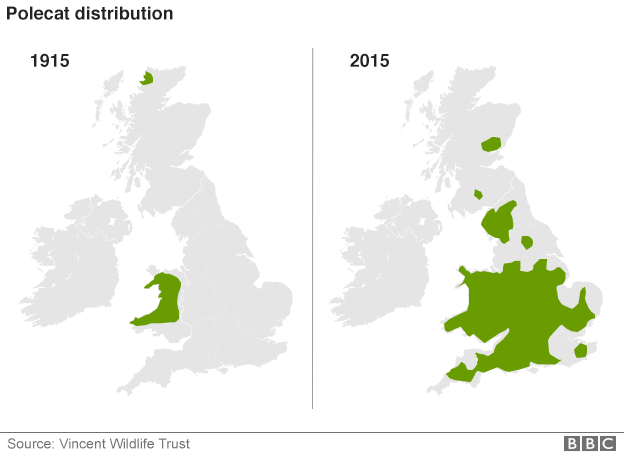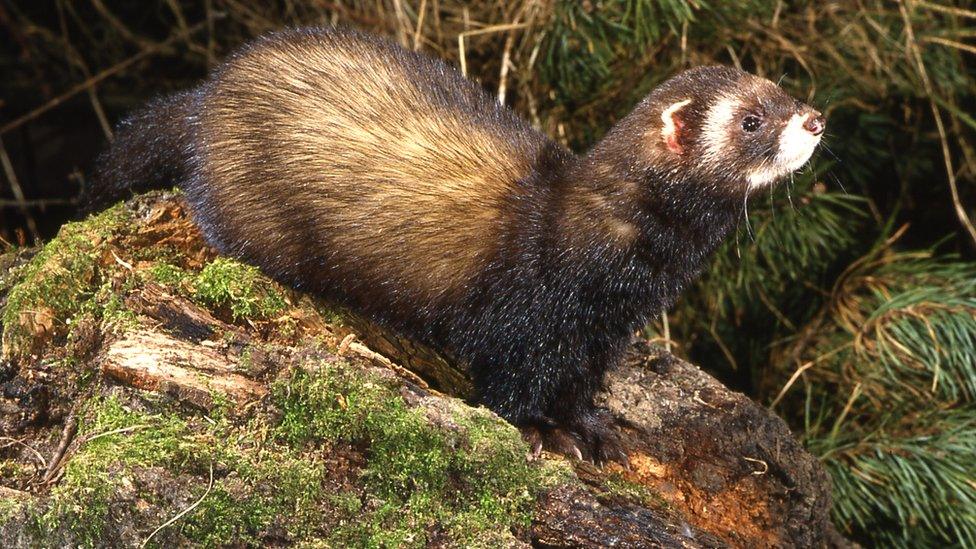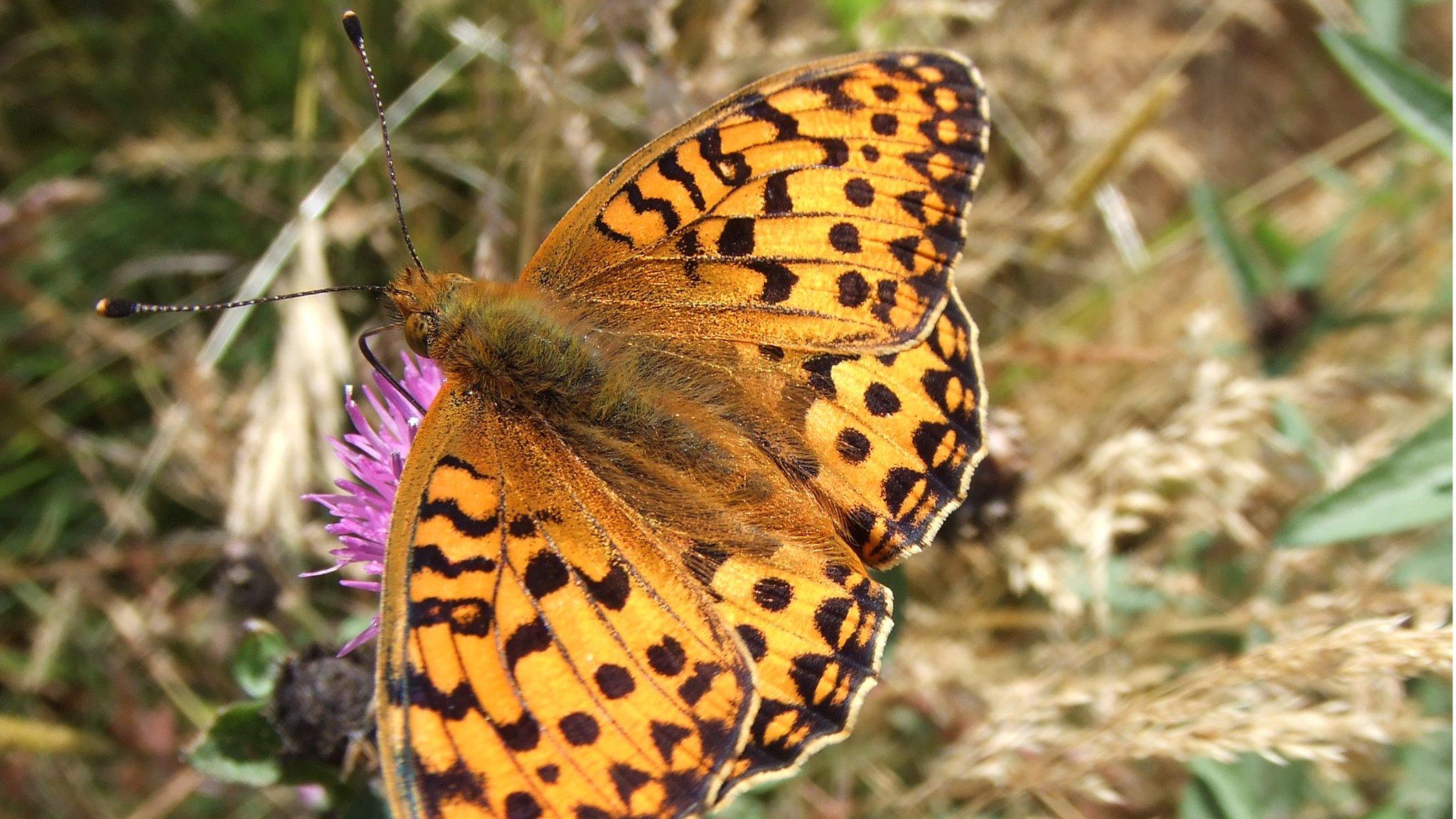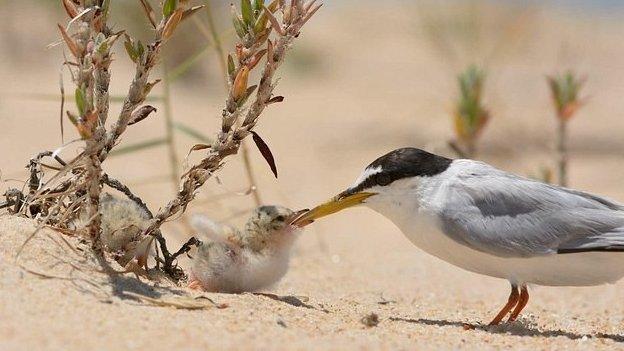Conservationists: Polecats 'spreading across Britain'
- Published
Naturalist Chris Packham describes the polecat's comeback as a great natural recovery
Polecats, which were almost wiped out in Britain in the last century, have made a remarkable comeback, conservationists say.
The results of a nationwide survey reveal that the animals are spreading into areas where they have not been seen for 100 years.
The research was carried out by the Vincent Wildlife Trust.
Lizzie Croose, who led the survey, said: "It's brilliant, it's a real conservation success story."
She added: "This is something we really need to celebrate, the recovery of a native carnivore that we once almost lost completely."
Naturalist and BBC presenter Chris Packham added: "It's one of the great natural recoveries."

European polecats (Mustela putorius), with their bandit-like face masks and lush brown fur, are found across the continent.
But in Britain, 100 years ago, they were pushed to the brink of extinction.
The creatures, which are members of the weasel family, were considered a pest because of their appetite for chickens and small game birds. Thousands were killed.
Miss Croose, who is the mustelid conservation officer at the Vincent Wildlife Trust, said: "They had a really tough time from humans.
"They were really hated - probably one of our most hated mammal species. And that resulted in them having a very extensive decline."
The last survivors retreated to Wales and remote parts of Scotland.
But the results of the survey show that the animals have now made a significant comeback.

The polecat is moving into areas where it has not been seen for more than 100 years
They have moved east into Suffolk and Norfolk, and north into South Yorkshire. A population that was introduced into Cumbria in the 1980s also continues to do well.
"Polecats are turning up in areas where they haven't been seen for over 100 years, so they have re-colonised really extensive parts of England," said Miss Croose.
"The main reason for their comeback is that they are not being persecuted so much now.
"Polecats are legally protected, so that has resulted in a real reduction in trapping and killing, so polecats have been able to recover and spread across the country once more."
In Scotland, however, polecats are mating with their domestic cousins - ferrets - and many animals there are now hybrids.
Other threats include growing numbers of polecats dying after eating poisoned rats. More are also being killed on the roads.
And in Europe, where polecats have generally been doing well, numbers have declined - although scientists do not know exactly why.
Polecat spotting
However, conservationists are optimistic that polecats will continue to recover in Britain.
Naturalist and BBC presenter Chris Packham said: "Fingers crossed over the next 25 years we should see polecats continue to spread and consolidate their population.
"I love the idea that polecats could be living out there. I don't necessarily need to see them, I just need to know they are there - maybe just seeing their poo, or footprint or prey remains.
"The fact they are now out there, back in England, in my lifetime, that has to be counted as a success."
At the British Wildlife Centre polecat keeper Matt Binstead added: "Working so closely with the polecats here, you get a real feel for their character and what a fantastic mammal they really are.
"The comeback is a huge success story for conservation groups everywhere."
Follow Rebecca on Twitter, external
- Published8 December 2015

- Published20 May 2015

- Published17 September 2015